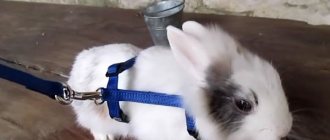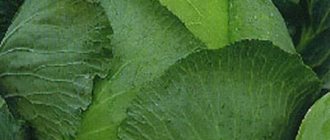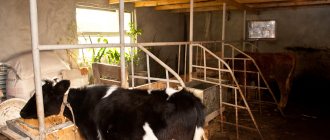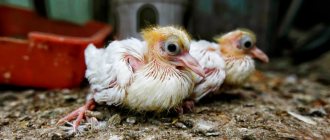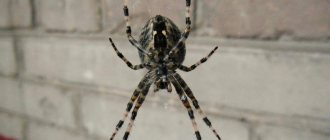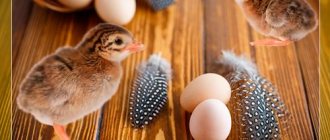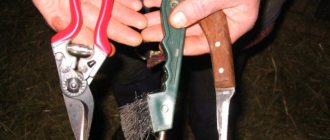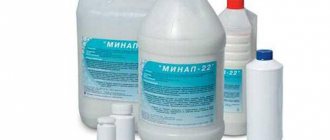- Bathing is an important part of ferret care
- Let's highlight the main rules
- How to choose a quality bath product?
- Bathing procedure from start to finish
The ferret is not only a small wild predator, the furry animals often become pets, settling in people's homes. Due to the activity of animals, it is sometimes difficult for owners to provide proper care for their pet and at the same time keep their home safe and sound.
One of the important but difficult care items is bathing the ferret. This fluffy handsome guy is clean in himself, but without bath days, soon an unpleasant smell will clearly be heard in the apartment. So every ferret owner should know all the nuances of when, how and with what you should and can wash your ferret. All this is described in this article.
How to bathe a ferret
There are a couple of nuances worth noting here. Namely, how to bathe a ferret correctly:
- The ferret's body temperature is about 40°, and the water temperature should in no case be lower, and, accordingly, not much higher;
- Avoid getting water into your ears;
- Do not bathe pregnant or lactating ferrets;
- After bathing, the animal will rush around the house to dry itself quickly.
To begin, fill a basin or bathtub with water. A ferret's normal body temperature is between 37.3 and 39.4 °C. Therefore, the water temperature must be within these limits. Drop a little shampoo there and shake the foam. Prepare everything you need: toys, a towel for drying.
Then place the ferret in the bath, making sure the water level is below its face. Gently scoop up the water with your palm and completely wet the animal's fur. You should not wash your face with shampoo. If at the same time the animal breaks out, then hold it suspended with one hand so that the hind legs remain in the water.
If your ferret dives underwater while swimming, don't panic—their ears are built differently than cats'.
Relatives of ferrets, otters and minks, which lead a semi-aquatic lifestyle, have ears adapted for long dives under water. In ferrets that are in the water of their own free will, the muscles of the skull pull the ears slightly back and the skin folds practically block the access of water to the inner ear.
What products can you use to wash your pet?
It is better to bathe domestic ferrets with special shampoos. It is forbidden to wash the animal with plain soap or other means. A product that is intended for people will only harm the animal: it contains highly harmful elements that are not suitable for animal fur. The shampoo intended for ferrets does not contain harmful substances and is made using all the features. Such products make pets' fur soft and shiny. It stops falling out, becomes thick and beautiful.
How to wash a ferret at home? First you need to warm up the water: it should not be too cold, as the animal can get very sick. Then they gradually begin to wet the ferret and lather it with shampoo. Make sure that water and detergent do not get into your pet’s eyes, ears or head.
If the ferret begins to struggle during bathing, he needs to be petted. To do this, you need to pick him up and stroke him. When bathing causes some inconvenience to an animal, you should not torture it; it is better to use dry shampoo. This product is very convenient to use: no water is needed to use it. It is poured onto dry fur and simply combed out, while the pet does not get nervous, but behaves very calmly.
You can wash without water
Owners of ferrets often ask how to wash a ferret without water? Ferrets sometimes get dirty, and to get your friend in proper shape, you may not need water. Dry shampoos have long been developed for such rodents, and using them is not at all dangerous. They get rid of nasty odors and wash out all the dirt from the wool.
You can use such products often, since they do not change the fat balance at all. However, such shampoos are not a panacea for complex water problems. You will still have to wash your ferret twice a month in the traditional way.
No matter how thoroughly you wash the rodent with dry detergents, it will not wash it. Well, sebum will not be washed off well, as during water procedures, and it must be removed so that the pores of the skin of the ferret can breathe.
Eliminating unpleasant odor
If your pet still has a specific “aroma,” try using special deodorants. Apply them before drying your ferret, before wiping. They can also treat a rodent cage. In the pet's house itself, what smells the most is its bedding.
This means that it is precisely this that needs to be processed. Loose deodorants are also used for such purposes. And rest assured that after spending the night in such a fragrant cage, your pet will smell great the next day.
Coat care
Your pet isn't a very furry creature, but that doesn't mean brushing is completely foreign to him. Its fur requires such necessary measures, and you need to scratch the rodent with a special massage brush. This is necessary for better blood circulation and the acquisition of a soft, silky coat. In addition to hygiene issues, you will also establish contact with your animal. Ferrets love to be combed.
With the onset of prolonged molting, you need to use a slicker for cats, because ferrets have very thick fur. In order not to cause pain to your pet, the fur must be plucked very carefully, without confusing dead hair with sprouted hair. The hair that has fallen out will quickly grow back in the period from 15 to 20 days. The fur that still remains on the pet’s body can be combed out using a brush or mitten.
It should be used daily during shedding. The ferret will not mind such a daily procedure, and his fur will always look good. If you have a vacuum cleaner in your home, you can use the attachments that come with it. This technique is most effective for lost hairs. But using a vacuum cleaner for these purposes is recommended only if your ferret is not afraid of loud noise.
Methods of controlling parasites
If fleas are found on a ferret, what should the owner do and how to get them out without ruining the pet’s beautiful fur? If insects are found, you should immediately begin to destroy them. If there are other animals in the house, they also need to be examined, treated, and the necessary medical procedures performed.
Cat fleas live on pets, and to combat them, experts recommend using products for dogs and cats. The veterinarian, depending on the number of bloodsuckers and the degree of development of the disease, selects the optimal drugs to help kill insects with minimal harm to the pet.
Some types of products are strictly prohibited for use on ferrets. Do not use flea collars, phosphates, sprays or formulations containing permethrin. You can repel parasites from your pet's cage by adding some cat litter containing cedar wood shavings to the bottom of the cage. It does not cause poisoning or allergies in animals and is absolutely safe.
Warnings
- Do not use dog shampoo, it can be very harmful to pet ferrets. Use only a mild shampoo: baby shampoo or shampoo safe for ferrets and cats.
- Your ferret will probably want to eliminate soon after the bath. If he does this on towels, he may step in feces, get dirty in it, and even fall asleep on it. Always keep an eye on your ferret while he is drying off. In addition, this process will be so interesting to watch that you yourself will not want to miss this spectacle.
- Wet fur will make your ferret heavier than usual. Be careful to ensure you are able to support your pet's full weight during and after bathing.
- Do not allow shampoos to get into your pet ferret's eyes. Some shampoos are very baking and your ferret won't forget it.
- Some ferrets like the taste of shampoo. If your ferret does too, try to prevent him from licking the shampoo as much as possible. A little shampoo will not harm your pet ferret, but too much shampoo can make your ferret sick.
- Don't bathe your ferret too often, as this can cause dry, flaky skin and rough, coarse fur. Do this only a few times a year, no more than once a month.
- After bathing, the domestic ferret will try to dry off as quickly as possible, rubbing it against everything that, in his opinion, can speed up the process. This includes your cute couch cushions, dusty floors, and sand. Indoor Litter So while your ferret is still drying off, keep him away from dirt, dust, and indoor pet litter boxes.
Creating conditions
Milk for dogs: can it be given and how often, features of the dog’s diet
When planning to get a pet ferret, you need to prepare the room where the pet will live:
The domestic ferret has a very flexible body and can climb into fairly narrow cracks and holes, get stuck in them and die. Therefore they should be sealed. Domestic ferrets have poor vision, and therefore cannot adequately judge the height at which they are located. Therefore, the animal should be blocked from accessing the open balcony and windows. You should not give your pet access to a container with water, for example, a toilet. The fry is very curious, she can climb in there and drown. All household chemicals should be kept locked and high in cabinets. Otherwise, the animal may chew through the packaging and suffer. It is also worth removing all breakable objects. If you are going to keep your ferret at home, you will have to remove all indoor plants.
The fret loves to dig the ground and sooner or later the flower will die, and the animal may also die if the plant turns out to be poisonous. You will need to learn to carefully close all doors, since an animal can run out into the street through the front door, and you can hit your pet through the interior door.
Additional containment measures
You need to wash the animal once a month, but during this time you can change the bedding in the cage and treat the fur with dry shampoo and deodorant. In addition to bathing your ferret, brush its fur, especially during shedding season. Female ferrets have a less specific odor than males during the mating period.
If you do not plan to breed individuals, it is better to sterilize them. Males should be bathed more often than females. You can treat the bedding and wool with special deodorants, this will help avoid unpleasant odors.
You should wash ferrets carefully; if the animal is not prepared, it will get scared, cause harm to you, and may get hurt itself. Some breeders are afraid to bathe their ferrets, or bathe them too often due to the unpleasant odor. It will be very harsh if washed rarely or incorrectly.
If your ferret wants to swim in the water, give him the opportunity. This is not bad for the animals, but on the contrary, it will be a positive thing for you, since subsequent baths will not cause any difficulties.
Providing proper and balanced nutrition to the animal also guarantees the absence of foul odors from the ferret, since the diet affects digestion, the condition of the coat and skin.
Provide your pet with vitamins to prevent skin diseases and vaccinate them in a timely manner, avoiding diseases that can be fatal.
Who strangles chickens at night: what predators hunt birds?
Frequent guests in the chicken coop are:
- foxes,
- caresses,
- ferrets.
These are cautious animals and are rarely seen by humans. This is why it is so difficult to find out who is strangling the chickens in the chicken coop at night. After visiting them, they usually see the following picture: feathers scattered around the area and poultry house, half-eaten chicken carcasses from which the blood has been drained.
Sometimes weasels and martens are beneficial. They, like domestic cats, hunt rats and mice, which often live in the chicken coop. Rodents steal eggs, choke chickens and carry diseases dangerous to birds and humans.
Rats in the chicken coop
Signs of a weasel and ferret
Ferrets and weasels are dangerous animals; they kill all the animals in the barn by strangulation, and take only one with them. If they start eating in the chicken coop, it means they won’t leave until the food runs out. If you get hens again, predators will quickly deal with them, since they consider the chicken coop their source of food.
Signs of a predator visiting a poultry house:
- Concerns about chickens.
- Ruffled feathers.
- Chickens are in no hurry to leave the coop.
- The appearance of dead chicken carcasses with their heads chewed off and blood sucked out.
This behavior pattern is typical for weasels and ferrets. To get rid of the pest, you will need to catch it and destroy it. Otherwise, you can lose all the chickens, and subsequently the geese and rabbits.
How to Protect Chickens from Ferrets and Weasels
The weasel kills chickens quietly, so it is difficult to catch it in the act. It is much easier to prevent its occurrence.
Weasel
Mechanical prevention of the appearance of predators and pests can be carried out:
- Do not leave food in the feeder for a long time.
- Do not store grain reserves in the chicken coop.
- Raise nests off the ground.
- Seal cracks and holes in the walls and foundation with cement mortar.
- Dig sheet metal or fine mesh around the chicken coop.
Farmers recommend against using traps due to the high risk of injury to chickens. However, in cases where this cannot be refused, you need to think about their location so as not to catch the hen.
Setting traps: how martens steal and kill chickens
As a rule, ferrets, weasels and martens avoid traps, so it is necessary to interest the animals. Bird feathers can be scattered in and around the trap. The predator will show curiosity and can be caught.
How to install a trap:
- It is best to use a dead animal as bait. Traps are placed on the way to it.
- You cannot handle the trap with bare hands; you must use gloves.
- To rid the trap of human odor, lubricate it with manure or soak it in spruce decoction for 2–3 hours.
The difficulty with this method is that the animals never walk the same route twice. It is almost impossible to predict the direction of movement, so catching a weasel or marten will be difficult.
Caught weasel
Pets
The natural enemies of martens, ferrets, and weasels are dogs and cats. Not all, some animals do not know how to catch and are even afraid of wild animals. Therefore, it is better to have several cats and dogs.
Domestic predators will help get rid of pests, but there is always a risk that they will start stealing eggs and crushing chickens. Certain breeds of dogs can catch furry predators, but they need to be trained to do so. Animals will quickly help you find out who is stealing chickens and hens.
These breeds include:
- Dachshund.
- Jack Russell Terrier.
- Fox terrier.
- Jagdterrier.
To prevent wild animals from approaching the utility block, you should install a doghouse next to it. This will help not only scare away the predator, but also catch it if it dares to come closer.
Repellers
Ultrasonic equipment is one of the most progressive and humane ways to repel predators and rodents. The principle of its operation is the targeted irritation of the animal’s sense organs. This sound causes them anxiety, fear and discomfort.
Ultrasound against pests
Ultrasound also scares moles and mice. If chickens are kept in the same room as rabbits, it is better to refrain from using the device.
When purchasing an ultrasonic repeller, you need to pay attention to the range of action; it should be enough for at least the perimeter of the chicken coop. The most popular models are: Electric Kot, Clean House, Grad-A and Pest Reject
Adviсe
- Bathe your pet ferret only a few times a year, no more than once a month. Bathing your ferret removes the natural oils from its skin and fur. After a bath, your ferret's skin must work hard to restore the lubricant that was just removed. This may cause your ferret to smell more strongly. But don't worry, this will only last for the first one or two days.
- It may be helpful to have a helper.
- If your pet ferret really doesn't like bathing, you can first let him play in the sink or tub without water to get him used to the area. Then open the tap a little and let your ferret explore the water. Give him his favorite treat while you gradually moisten his fur.
Taking water procedures for the first time
An important point is bathing your ferret for the first time. The first time always causes a little stress for animals: they see water for the first time, since they do not wash in their natural habitat.
First of all, the animal needs to be prepared for this procedure. You can take a special bath, or you can get by with a simple basin. You need to put several toys in such a bath so that the animal does not feel anxious.
First, the ferret is placed in a dry basin and only then they begin to gradually add water. You can’t pour a lot of water, just wet the animal’s paws. It is also advisable to build a small dry table above the bath: the animal will rest on it during breaks between baths. It is worth washing the animal in such a way that it likes it. If you don't do everything according to the rules, your pet will be very afraid of water.
In conclusion
Washing a ferret yourself at home is not difficult, the main thing is to do everything carefully so as not to harm the health of the animal. These little animals love to swim, but not all of them do, so they need to be accustomed to water gradually, otherwise you can cause them severe stress.
Often this is also not worth doing, because the wool may begin to turn yellow. The coat turns yellow especially often in uncastrated males. For bathing you need to use only special shampoo. When using it, the wool will be soft, shiny and smell nice.
Follow these conditions and your ferret will be clean and happy!
What to wash with
These days you can find many different products for bathing ferrets, both in veterinary pharmacies, pet stores and in regular supermarkets. The most famous product is Shustrik
.
Also, among the best ferret owners are Marshall Ferret
, such as
Creme Rinse Tropical Blend
(cream conditioner) and
Shampoo
(tear-free shampoo).
There is another good product - Ferretsheen “8 in 1” Deodorizing Shampoo
.
If you don’t have the opportunity to buy a special shampoo, you can get by with any baby shampoo without tears, always with chamomile extract and without additional flavorings (like Jonson’s
).
